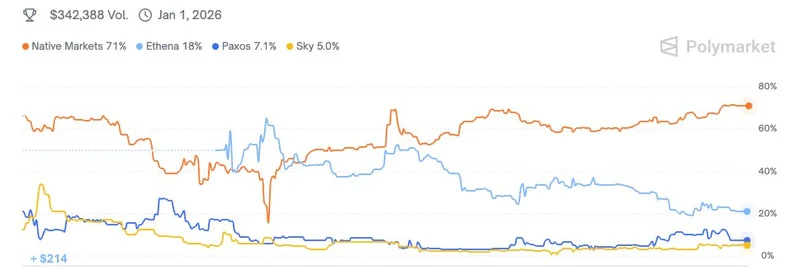In the fast-paced world of decentralized finance (DeFi), where trust is everything and rumors spread faster than a viral meme, Hyperliquid's recent request for proposals (RFP) for its USDH stablecoin has ignited quite the firestorm. If you're knee-deep in meme tokens or just keeping tabs on the latest blockchain buzz, this drama is worth your attention—especially as it touches on validator independence, which could ripple into how we trade those quirky digital assets on platforms like Hyperliquid.
Let's break it down simply. Hyperliquid, the high-performance perpetuals exchange built on its own layer-1 blockchain, announced an RFP to select a provider for USDH, a proposed USD-pegged stablecoin aimed at enhancing liquidity and stability in their ecosystem. Sounds straightforward, right? But whispers in the crypto corridors suggest it's anything but.
A prominent voice in the space, Haseeb Qureshi from Dragonfly Capital, dropped a bombshell tweet questioning the whole process. He claimed the RFP feels rigged, with validators seemingly only entertaining bids from Native Markets—a fresh-faced startup—while ignoring heavyweights like Ethena, Paxos, and Agora. According to Haseeb, Native Markets' proposal dropped suspiciously quick after the RFP announcement, hinting at insider knowledge, and community sentiment on platforms like Polymarket initially favored established players before odds shifted dramatically.
This isn't just idle gossip; it strikes at the heart of decentralized governance. Validators, those crucial nodes that secure the network and vote on key decisions, are supposed to act independently. If there's any whiff of backroom deals, it erodes confidence—not just in Hyperliquid, but across DeFi platforms where meme tokens thrive on community trust and fair play.
Enter Marcantonio from Galaxy Digital, head of DeFi at the firm and operator of a Hyperliquid validator. In a direct rebuttal, he stated: "Galaxy runs a @HyperliquidX validator and is in the active set. I can confirm that no one has reached out to us, from the foundation or otherwise, telling Galaxy how to vote." This pushback is a big deal. Galaxy isn't some fly-by-night operator; they're a major player in crypto infrastructure, and their assurance of autonomy could sway undecided validators and calm jittery traders.
The replies to Marcantonio's post paint a mixed picture. Some users cheer the transparency, with one saying "Based Galaxy" and even longing more on related bets. Others poke fun or question motives, like suggestions of "insider deals" or calls for bolder actions. It's classic crypto Twitter: a mix of support, skepticism, and memes that keep the conversation alive.
Why does this matter for meme token enthusiasts? Hyperliquid has carved out a niche as a go-to spot for trading perps on everything from blue-chip cryptos to wild meme coins. A stable USDH could supercharge that liquidity, making it easier to ape into the next big dog-themed token without slippage eating your gains. But if the RFP process lacks credibility, it might deter top-tier providers and slow adoption, indirectly hitting the meme ecosystem that relies on robust DeFi rails.
As the voting unfolds, keep an eye on Hyperliquid's official channels and community forums. Will Native Markets clinch it, or will validator independence prevail? In the meme world, where narratives drive prices, this could be the plot twist that pumps or dumps your portfolio. Stay tuned—crypto never sleeps, and neither should your radar for these developments.



